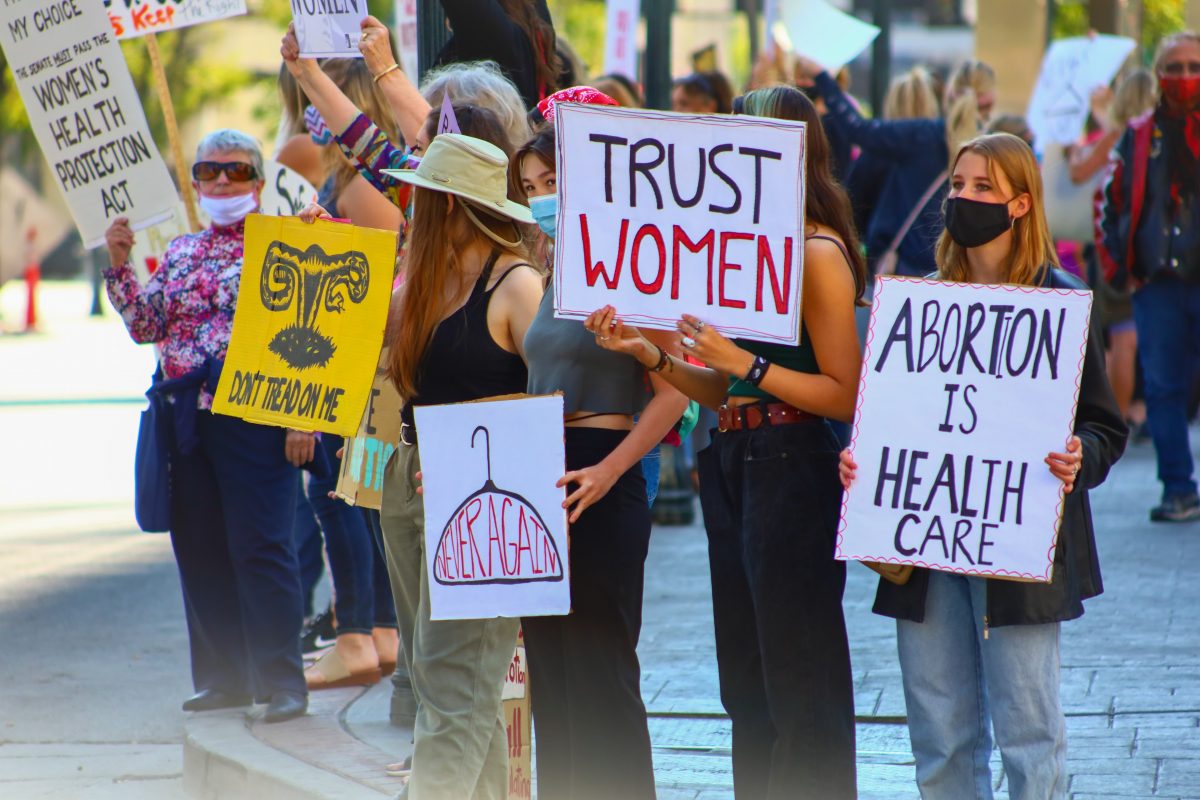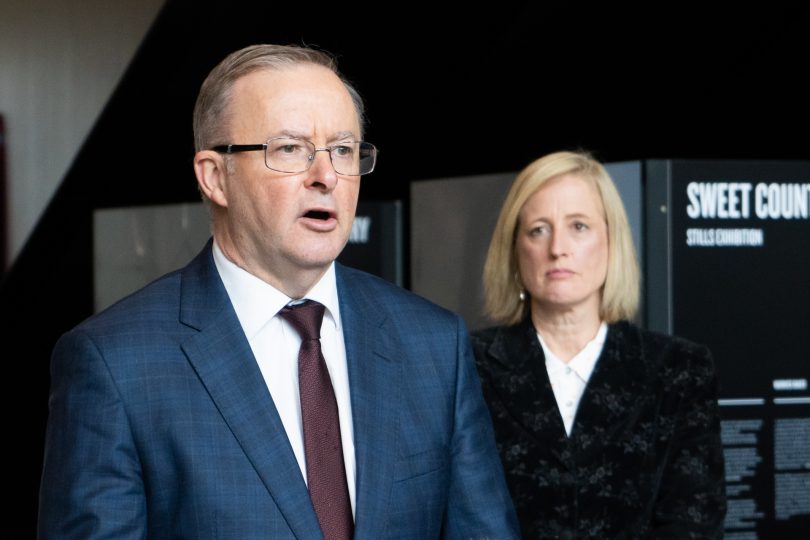
The news out of America that Roe v Wade had been overturned has sparked protests around the world. Photo: Manny Becerra.
Over the weekend, the United States Supreme Court overturned Roe v Wade.
In doing so, the court effectively ended the constitutional right to an abortion for American women and individual states will be able to ban or restrict the procedure once more, with at least 26 of them expected to do so.
In Australia, women’s rights advocates have watched on with horror.
Minister for Women Katy Gallagher said the decision reinforced a “need to remain vigilant because hard-fought-for wins before our parliaments can be taken away easily”.
Executive director of Sexual Health and Family Planning ACT (SHFPACT) Tim Bavinton agreed that today’s position should not be taken for granted.
“It’s not immediately under threat [but] a proportion of the community does not believe abortion care should be either publicly funded or as available as it is, and they will be looking for opportunities to roll that back,” Mr Bavinton said.

Both Prime Minister Anthony Albanese and Minister for Women Katy Gallagher characterise the US decision as a step backward for women. Photo: Region.
Across the country, medical abortion is legal up to nine weeks’ gestation.
Then, the rules about accessing terminations are different across the states and territories.
Western Australia is the only state or territory where it remains under the criminal code, while South Australia is the most recent to decriminalise abortion, with changes to come into effect next month.
In the ACT, there is no legislated gestational limit on abortion. Around the country, there is a patchwork of timeframes put on accessing the service which varies between 16 and 24 weeks.
In New South Wales and Queensland, abortions can be performed up to 22 weeks. In Victoria, that is capped at 24 weeks. After that, two doctors must approve the procedure.
SHFPACT director Mr Bavinton said there are some misunderstandings about accessing an abortion in the ACT, even with the most progressive laws in the country.
“We have one of the most accessible legislative environments, but we don’t have a comparatively accessible service environment,” he said.
That’s because while medical abortions are available through a trained GP, telehealth services or with MSI Australia (formerly Marie Stopes Australia), a surgical abortion is only available up to 16 weeks’ gestation and must be performed by a doctor or a nurse at the MSI clinic or Gynaecology Centres Australia.
After 16 weeks, the patient will need to travel interstate.
Abortion has been decriminalised in the ACT since 2002 when it became regulated as a health service, not a criminal matter, making the Territory a nation-leading jurisdiction in that regard.
Since 2016, it has also been an offence to protest within 50 metres of an abortion clinic.
Those laws were introduced to the Assembly by the Greens. At the time, now Attorney-General Shane Rattenbury said women should be entitled to access the services without fear.
In 2018, the Assembly also passed laws that meant women in the ACT could access the abortion pill over the phone or through a GP’s prescription. This brought the territory in line with other jurisdictions.
For Mr Bavinton, however, this doesn’t mean all the work has been done, particularly as the cost of accessing an abortion remains a barrier for many women.
“Federal and state and territory governments must review funding arrangements for abortions through public hospitals so that everyone – regardless of their capacity to pay – can have access,” he said.
For example, a young woman from a wealthy family or whose partner is a high earner wouldn’t necessarily fit into any criteria for financial disadvantage. But, as Mr Bavinton explained, she may not be able to talk to her partner or family, particularly if there are religious, cultural or personal reasons behind them being anti-abortion, and she may not be able to draw on those resources.
And while accessing a medical abortion isn’t hugely costly in itself, costs increase rapidly for a surgical procedure.
When you add mental health or substance abuse and addiction into the equation, this is exacerbated.
“In these scenarios, many people don’t find out they are pregnant until later in the picture and it may take them longer to make the decision on whether to terminate,” he said.
“The procedure becomes increasingly expensive the longer you wait. This is especially true in the ACT where after 16 weeks you will need to add travel and accommodation costs on to that.”
Those costs can increase from a couple of thousand dollars to $7000 and even to above $10,000.
And for women in regional and remote communities, this disadvantage only gets worse.














